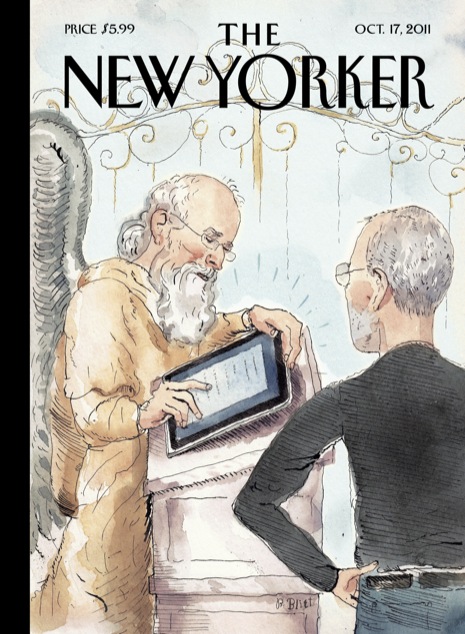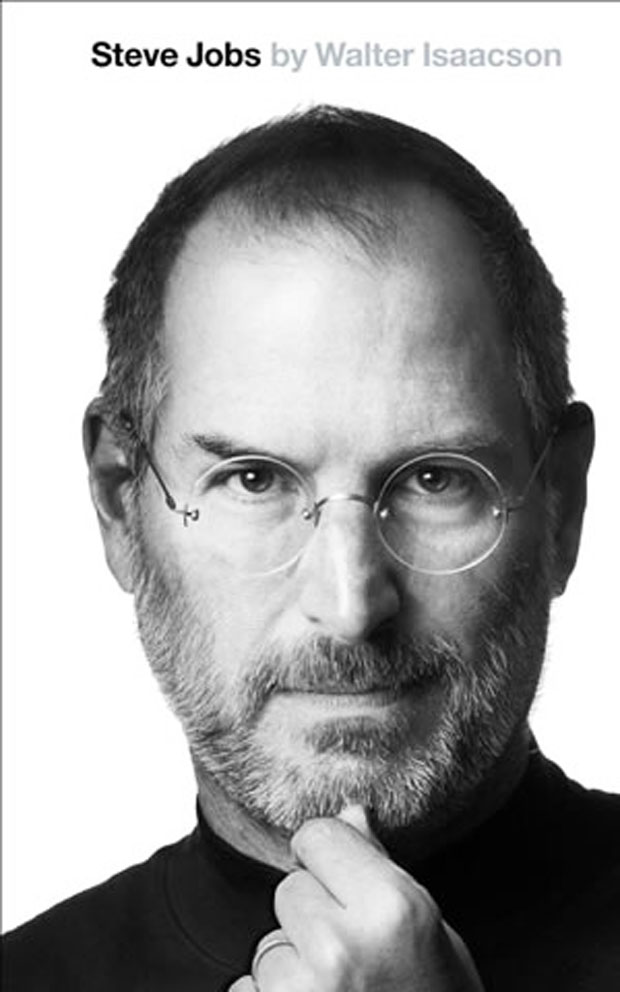
FRESH AIR
When Steve Jobs died on Oct. 5 from complications of pancreatic cancer, many people felt a sense of personal loss for the Apple co-founder and former CEO. Jobs played a key role in the creation of the Macintosh, the iPod, iTunes, the iPhone, the iPad — innovative devices and technologies that people have integrated into their daily lives. Jobs detailed how he created those products — and how he rose through the world of Silicon Valley, competed with Google and Microsoft, and helped transform popular culture — in a series of extended interviews with Walter Isaacson, the president of The Aspen Institute and the author of biographies of Albert Einstein and Benjamin Franklin. The two men met more than 40 times throughout 2009 and 2010, often in Jobs’ living room. Isaacson also conducted more than 100 interviews with Jobs’  colleagues, relatives, friends and adversaries. His biography tells the story of how Jobs revolutionized the personal computer. It also tells Jobs’ personal story — from his childhood growing up in Mountain View, Calif., to his lifelong interest in Zen Buddhism to his relationship with family and friends. In his last meetings with Isaacson, Jobs shifted the conversation to his thoughts regarding religion and death. “I remember sitting in the back garden on a sunny day [on a day when] he was feeling bad, and he talked about whether or not he believed in an afterlife,” Isaacson tells Fresh Air‘s Terry Gross. “He said, ‘Sometimes I’m 50-50 on whether there’s a God. It’s the great mystery we never quite know. But I like to believe there’s an afterlife. I like to believe the accumulated wisdom doesn’t just disappear when you die, but somehow it endures.” Jobs paused for a second, remembers Isaacson. “And then he says, ‘But maybe it’s just like an on/off switch and click — and you’re gone.’ And then he paused for another second and he smiled and said, ‘Maybe that’s why I didn’t like putting on/off switches on Apple devices.’ MORE
colleagues, relatives, friends and adversaries. His biography tells the story of how Jobs revolutionized the personal computer. It also tells Jobs’ personal story — from his childhood growing up in Mountain View, Calif., to his lifelong interest in Zen Buddhism to his relationship with family and friends. In his last meetings with Isaacson, Jobs shifted the conversation to his thoughts regarding religion and death. “I remember sitting in the back garden on a sunny day [on a day when] he was feeling bad, and he talked about whether or not he believed in an afterlife,” Isaacson tells Fresh Air‘s Terry Gross. “He said, ‘Sometimes I’m 50-50 on whether there’s a God. It’s the great mystery we never quite know. But I like to believe there’s an afterlife. I like to believe the accumulated wisdom doesn’t just disappear when you die, but somehow it endures.” Jobs paused for a second, remembers Isaacson. “And then he says, ‘But maybe it’s just like an on/off switch and click — and you’re gone.’ And then he paused for another second and he smiled and said, ‘Maybe that’s why I didn’t like putting on/off switches on Apple devices.’ MORE

